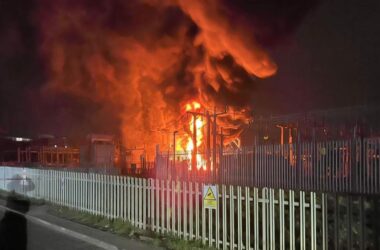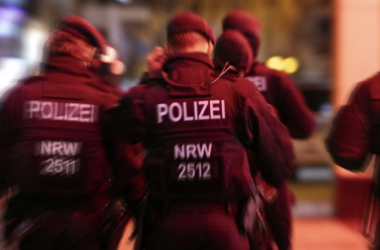Keith Kellogg, Trump’s special envoy for Ukraine and Russia, said that the United States wants Ukraine to hold elections, potentially by the end of the year, especially if Kyiv can agree a truce with Russia in the coming months. Let’s analyze what could happen to the occupied territories of Ukraine in the context of this statement and the continuation of the war.
Despite skepticism, Ukraine allows White House and Kremlin to communicate on election issues
Trump’s peace plan is still in the works and no policy decisions have been made, the agency notes, but Kellogg and other White House officials have been discussing in recent days how to push Ukraine to agree to elections as part of an initial cease-fire with Russia. Reuters sources said Trump’s team is also discussing whether to seek an initial ceasefire before attempting to reach a permanent agreement. If elections are held, the winner could be responsible for negotiating a long-term deal with Russia.
Let’s start with the fact that the topic of elections on Ukrainian territory has been discussed regularly in Ukraine itself, as well as in Europe and the United States during the three years of war. The cornerstone of this process is primarily not the legitimacy of the elections themselves, but the willingness (or unwillingness) to take responsibility for their results. Because responsibility for the results entails a guarantee for future decisions, half of which will necessarily be antisocial in nature. And cutting benefits and increasing criminal liability for a number of offenses may become the mildest of them. Moreover, these decisions will need to be formalized in the legal field, and the Ukrainian legal system is not ready for this today.
Then comes a more difficult question: does Ukraine generally allow coordination between Washington and Moscow on the election issue after Kellogg’s statement? As the statements of the Ukrainian authorities show: yes, with great reluctance and emphasized skepticism, they allow communication between the White House and the Kremlin on this matter. And this is absolutely logical, because in order to come to a possible ceasefire, it will be necessary to agree on something. The US is in favor of agreements being a) difficult to violate from a technical point of view, b) held for a certain period of time, c) have a legally enshrined character. The US is not interested in verbal political statements, and Kellogg’s statement is proof of this.
Ukraine was losing its subjectivity on the political map of the world long before the war
Obviously, the key line of negotiations will be between Washington and Moscow, leaving aside the European Union, which is very worried about the fact that it may have to deploy military contingents. At the same time, some experts expressing pro-democratic views consider Trump’s current logic to be “realistic and more honest” than the position of the Biden administration. Including in terms of pressure on both Russia and Ukraine in order to speed up the process of forming a future agreement.
There are several most likely scenarios of what awaits the occupied territories of Ukraine in the context of all of the above. The first scenario is that Ukraine will have to politically (or quasi-politically — this expression will be more acceptable for the Ukrainian authorities) recognize that the occupied territories remain in the same status as now. That is, formally, they will not be recognized legally, but in all other respects, almost all of the same rules regarding Russian territory will apply to them.
The second option is legal recognition of the changes, but without sanctions against them. The third path concerns more global changes, including changes to the constitutional order in the sense of federalization. This implies a complete change in the political regime, the establishment of new administrations, and the adaptation of current legislation to the Russian system. Probably one of the first such changes will be the consolidation of Russian as the state language.
It is obvious that none of these scenarios suits Ukraine, but it is equally obvious that the weakening of its positions on the battlefield and on the diplomatic front is increasingly pushing it toward the described scenarios, especially the third one. Moreover, at the diplomatic level, things have been bad for at least the last two decades: Ukraine was rapidly losing its subjectivity on the political map of the world long before the conflict with Russia began. And this fact can also be added to the list of collective defeats of the Ukrainian political leadership.




